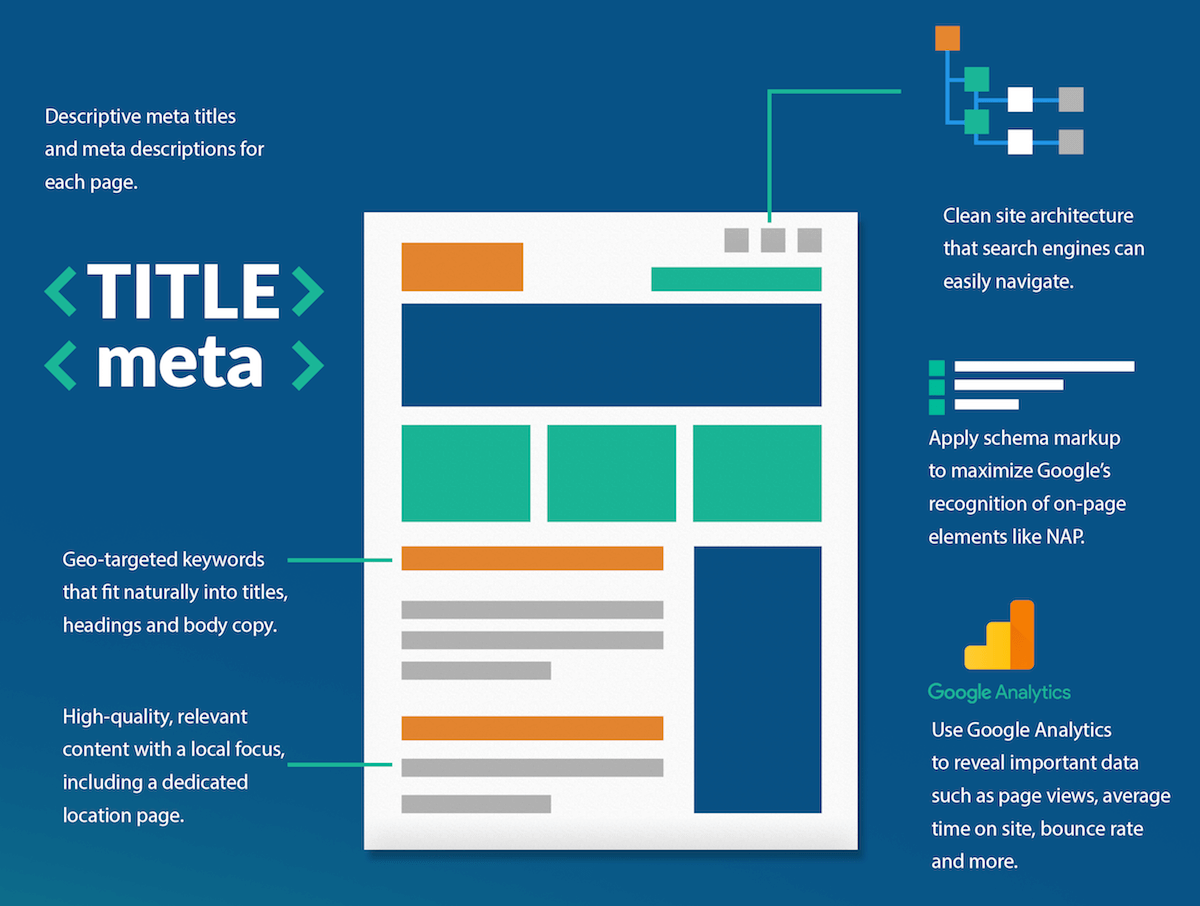On-page SEO is an SEO practice that can be completely controlled by the one writing it. It is completely up to you, about what topic you wish to establish, and the goal or end-result you wish to see. It is you who gets to see who you wish to target and what are the main or focus keywords you want to be found on.
In very simple words, on-site SEO is the process of optimising various front-end and back-end components of your website to make it rank higher in search engines and bring in new traffic. These are the changes that you can see on your website’s page and hence gets its name as “on-page SEO”.
Since every part of an on-site SEO strategy is in the hands of the SEO expert, it is critical to do it correctly to obtain the required results. So let’s discuss the various elements of on-site SEO that fall into three main categories:
- Content elements
- HTML elements
- Site architecture elements
Content Elements
The elements within your site copy and content make up for content elements. This category contains those elements that focus on curating high-quality page content that benefits your visitors and assures Google that your website provides value.
High-quality page content
Your content is the heart and soul of on-site SEO. It is what tells both bots and humans what your website and business is all about and how you can help them.
The first step to creating high-quality content is by choosing relevant keywords and topics. Make use of free tools to perform thorough research on the best keywords to use.







